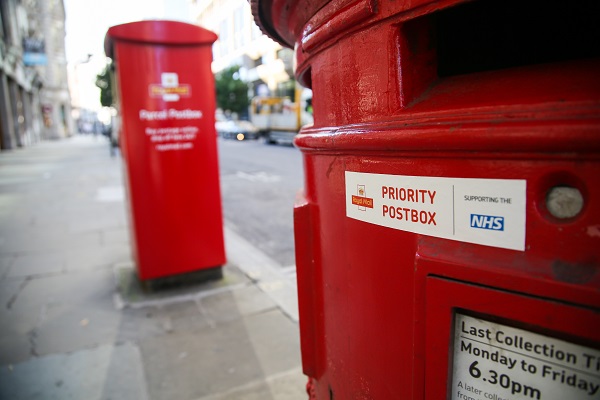Your vote counts: Royal Mail, Halma and Premier Foods
16th July 2021 09:15
by Graeme Evans from interactive investor
There are recommendations that shareholders vote against one of these pay deals. Which one do you think it is?

A record of stock market outperformance is unlikely to mean Halma (LSE:HLMA) gets an easy ride when it asks shareholders to approve a big pay rise for its chief executive next week.
Halma believes the 34% salary increase, planned across two years to £900,000 by 2023, is necessary as the conglomerate is now firmly established in the FTSE 100 index and needs to ensure it has incentives in place to retain its top staff.
Voting advisory group Glass Lewis argues, however, that the package on offer for boss Andrew Williams is excessive in the current climate. It has recommended that Halma shareholders vote against the company's new remuneration policy at Thursday's AGM.
- Shares for the future: everything you need to know
- Make a difference and use your vote this AGM season
- Take control of your retirement planning with our award-winning, low-cost personal pension
Royal Mail (LSE:RMG) also enjoyed a strong share price performance last year, but as shareholders will hear at Wednesday's AGM, there has been no bonus for executives due to concerns about service standards and the slow pace of operational change.
Other AGMs taking place next week include Experian (LSE:EXPN) and Bloomsbury Publishing (LSE:BMY) on Wednesday and SSE (LSE:SSE) and Pennon Group (LSE:PNN) on Thursday.
Royal Mail (Wednesday, 21 July)

A vastly improved performance by Royal Mail in terms of share price and operating profit was not enough to trigger bonus payments for executive directors in 2020/21.
The letters and parcels delivery firm said the decision reflected quality of service issues, the slower than expected pace of the company's transformation and the fact that performance was aided by one-off contracts to support the Covid-19 testing programme.
Operating profits still rose 116% in the year, while shares jumped 300% to above 500p, as online shopping trends and a long-awaited agreement with the Communication Workers Union on operational change and pay considerably improved the outlook.
Other reasons for not paying a bonus to executive directors and senior managers included the suspension of the final dividend in 2019/20 and the loss of 2,000 jobs in a restructuring.
- More Royal Mail upgrades and a FTSE 250 promotion hopeful
- Top 20 most-bought UK shares in Q2 2021
- Subscribe to the ii YouTube channel and catch all our latest interviews and video content
Former interim chief executive Stuart Simpson, who left the company at the end of January, and the recently promoted finance chief Mick Jeavons, were the executive directors to miss out.
Keith Williams, who served as interim executive chair for eight months following the surprise exit of chief executive Rico Back last May, remained on the same fee he was paid when leading the board in a non-executive capacity.
Simon Thompson, who has previously worked for Apple, Ocado and Honda, was appointed permanent chief executive in January on a salary for this financial year of £525,000.
He stands to receive 150% of his salary from this year's bonus scheme, dependent on achieving targets that are 75% financial and 25% focused on ESG and other strategic priorities.
Voting advisory group Glass Lewis has recommended shareholders vote in favour of the remuneration report.
Halma (Thursday, 22 July)
The salaries and incentives on offer for the highly regarded Halma management team have been updated in keeping with the company's elevation to the elite half of the FTSE 100 index.
Since 2018, when the old remuneration policy benchmarked bonuses against the FTSE 250 index, an investment of £100 of Halma shares has become £177 compared to £109 for a similar investment in the FTSE 100 index at the end of the 2020/21 financial year.
Halma's new three-year remuneration policy for approval at next week's AGM re-calibrates incentives alongside those in the FTSE 100 index excluding financial services companies.
- ii view: Halma reports yet another year of record profit
- Wild’s Winter Portfolios 2020: successful strategy ends with a bang
This means the maximum annual bonus opportunity for the chief executive - a post filled by Andrew Williams since 2005 - rises to 200% of salary from 150% and longer-term incentives to 300% of salary from 200% currently.
The current salary for the CEO is £669,325, but this is set to rise to £776,500 next year and to £900,000 the following year subject to a successful business performance in 2022.
The remuneration committee said this was a one-off salary adjustment, and that it then intended to return to its normal approach of restraint, with further increases being aligned to those for the wider workforce.
Voting advisory group Glass Lewis acknowledged the rationale for the change but questioned whether such a substantial increase over a short period was appropriate in the current climate. It has recommended shareholders vote against the new remuneration policy.

Remuneration committee chair Jo Harlow noted that retention risk had become acute for Halma after two board members left the business, with Paul Simmons recently heading to become CEO at FTSE 250-listed Hill & Smith and the other joining a private equity business.
She added: “The committee is also concerned that effective succession planning for the CEO and other executive director roles is not possible unless Halma offers an appropriate remuneration package for its size, complexity and growth trajectory.”
Williams joined Halma in 1994 as the managing director of one of its operating companies before stepping up to Halma’s executive board in 2002. He was paid just over £3 million last year, including a much lower annual bonus of £484,000.
His expectations at the start of the 2020/21 financial year had been for profits to be 5-10% below the prior year, but the company performed more resiliently during the pandemic to deliver 4% growth to £278.3 million.
The conglomerate is a group of life-saving technology companies, with its portfolio of subsidiaries operating in niche markets and responsible for products that sit inside the systems of world leading equipment manufacturers.
This structure enables Halma to easily integrate new acquisitions as well as to merge or sell businesses should the longer-term market potential change adversely.
Williams said: “While the group has reported higher levels of growth in previous years, I have never been prouder or more impressed with Halma’s ability to deliver a robust financial performance while also satisfying the broader needs of all stakeholders.”
Adjusted earnings per share rose 2% to 58.67p and the total dividend increased 7% to 17.65p, making the 42nd consecutive year of dividend per share growth of 5% or more.
In January, Halma was recognised as Britain’s Most Admired Company 2020 by a peer group of FTSE 100 executives, analysts and commentators.
The AGM will be the last with Paul Walker as chair. The former Sage chief executive has been in the role since 2013, at which point Halma was a FTSE 250 company with a share price of £5 and market value of under £2 billion.
Today, Halma is around the 50th largest company in the FTSE 100 index worth about £2.75 billion, having grown its share price by more than five times.
Walker's role is being taken by Dame Louise Makin, the former chief executive of healthcare company BTG, who was appointed to the board in February.
Premier Foods (Friday, 23 July)
The fortunes of the Bisto gravy and Mr Kipling firm have vastly improved under chief executive Alex Whitehouse, with Premier Foods (LSE:PFD) one of the best performing shares in the pandemic.
Whitehouse has been aided by the home cooking boom, which has allowed the company to pay down expensive debt and invest the savings in new products.
The past year's strong trading performance and balance sheet improvement meant Whitehouse got the maximum bonus award of £625,000, representing 125% of salary, in 2020/21. One-third will be paid in shares deferred for a three-year period.
The maximum targets relating to total shareholder return and adjusted EPS were also exceeded, meaning the company's long-term incentive plan will vest in full on 8 August to hand the former Reckitt Benckiser executive an award worth £745,000.
- UK stocks are a bargain after record slump in company revenue
- Top 20 most-bought UK shares in Q2 2021
- Check out our award-winning stocks and shares ISA
He was appointed in 2019 on a salary significantly below his predecessor but following the strong performance Whitehouse's pay was increased to £500,000 from August to position his salary in the lower quartile of the FTSE 250 index.
In total, he received £1.9 million for 2020/21, while finance director Duncan Leggett got £621,000. Glass Lewis has recommended a vote in favour of the remuneration report.
These articles are provided for information purposes only. Occasionally, an opinion about whether to buy or sell a specific investment may be provided by third parties. The content is not intended to be a personal recommendation to buy or sell any financial instrument or product, or to adopt any investment strategy as it is not provided based on an assessment of your investing knowledge and experience, your financial situation or your investment objectives. The value of your investments, and the income derived from them, may go down as well as up. You may not get back all the money that you invest. The investments referred to in this article may not be suitable for all investors, and if in doubt, an investor should seek advice from a qualified investment adviser.
Full performance can be found on the company or index summary page on the interactive investor website. Simply click on the company's or index name highlighted in the article.